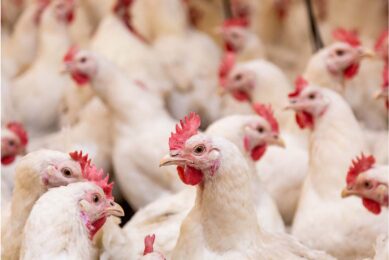Live AI vaccine has potential
When tested in mice and ferrets, experimental vaccines based on live, weakened versions of different strains of the H5N1 avian influenza virus were well-tolerated and protected the animals from a deadly infection with naturally occurring H5N1 flu viruses.
These findings, which appear in the September 12 issue of PLoS Medicine, are also encouraging, the researchers say, because they demonstrate the ability to create a vaccine based on one particular strain of the H5N1 bird flu virus that could potentially protect against different emerging H5N1 flu strains.
Senior investigator Kanta Subbarao, and co-chief Brian Murphy, both of the Laboratory of Infectious Diseases at the National Institute of Allergy and Infectious Diseases (NIAID), part of the National Institutes of Health (NIH), led the research. The study was the result of a cooperative research and development agreement between NIAID and MedImmune.
“If an influenza pandemic were imminent or under way, we would need a vaccine that could stimulate immunity quickly, preferably with a single dose,” says NIAID Director Anthony Fauci. “Vaccines based on live but weakened versions of the H5N1 avian influenza virus may quickly stimulate protective immunity.”
The NIAID and MedImmune research team created three vaccines by combining modified proteins derived from virulent H5N1 flu viruses with proteins from an artificially weakened (attenuated) flu strain. The virulent H5N1 viruses were isolated from human cases in Hong Kong in 1997 and 2003, and Vietnam in 2004. The attenuated flu vaccine strain was lab-grown in progressively colder temperatures (“cold-adapted”) to prevent the resulting vaccine viruses from spreading beyond the relatively cool upper respiratory tract.
Join 31,000+ subscribers
Subscribe to our newsletter to stay updated about all the need-to-know content in the poultry sector, three times a week. Beheer
Beheer








 WP Admin
WP Admin  Bewerk bericht
Bewerk bericht